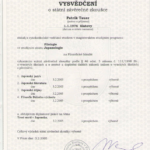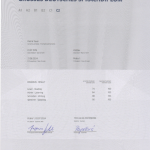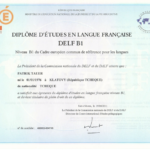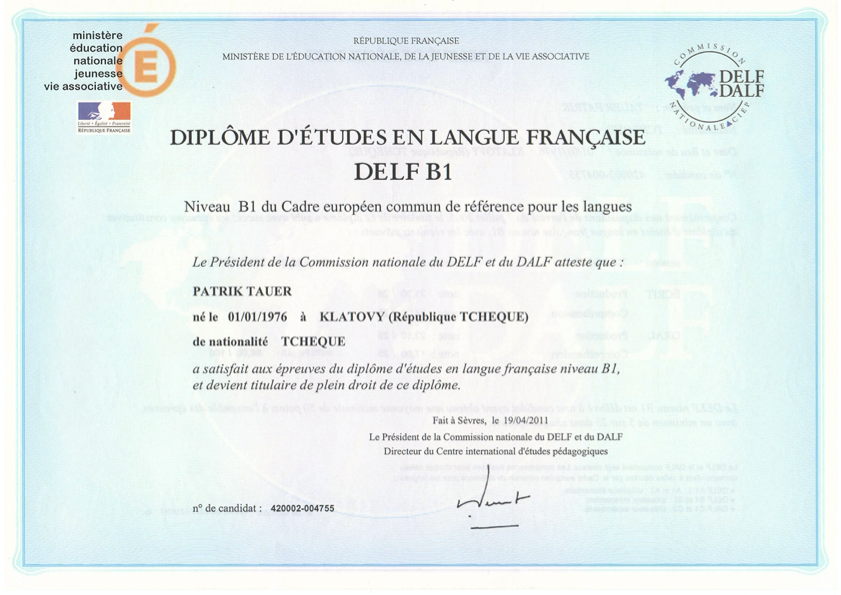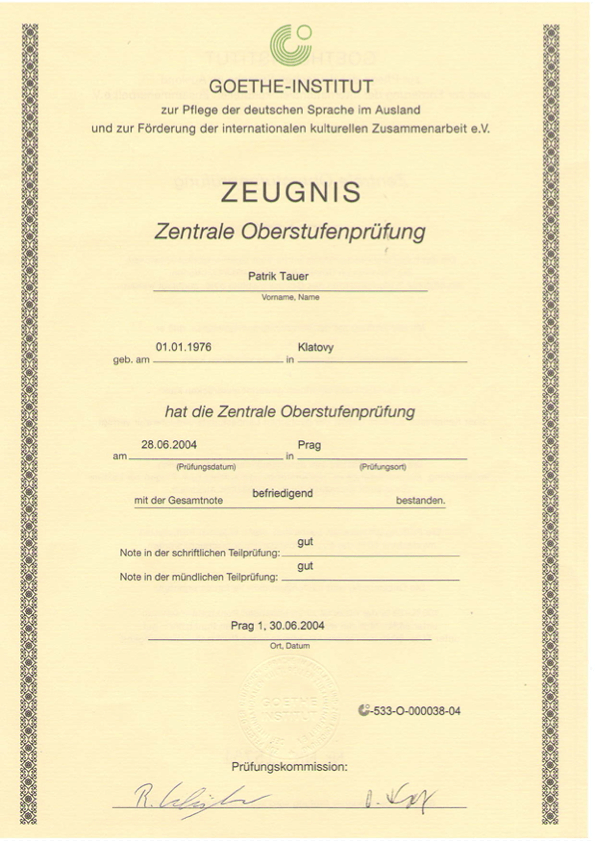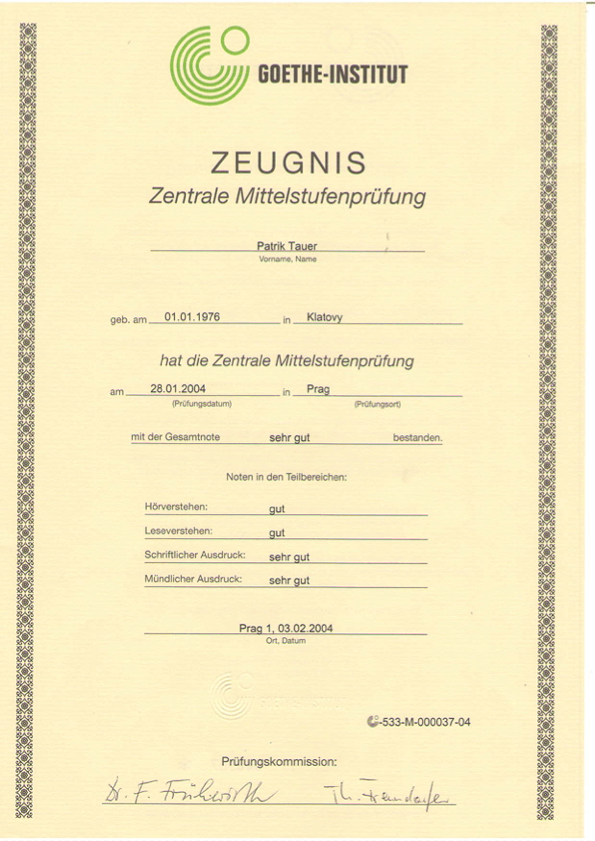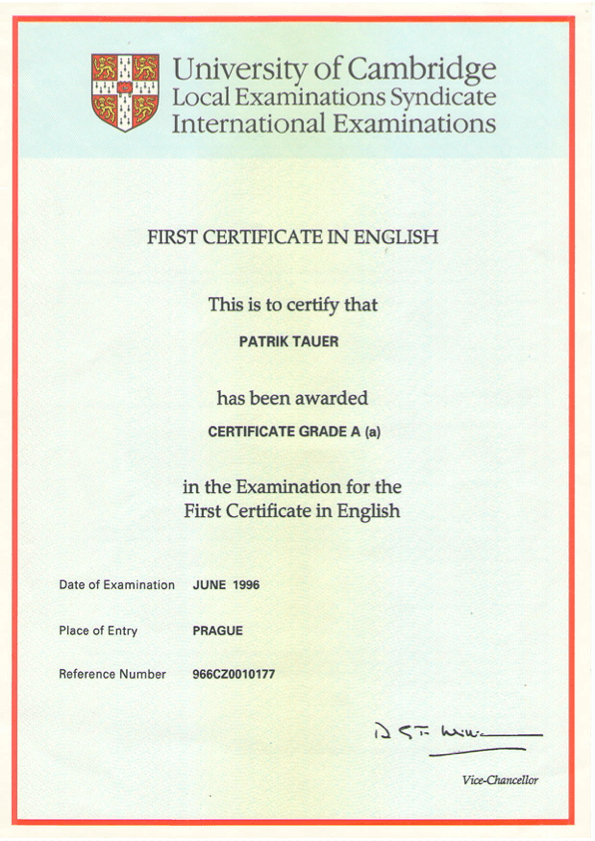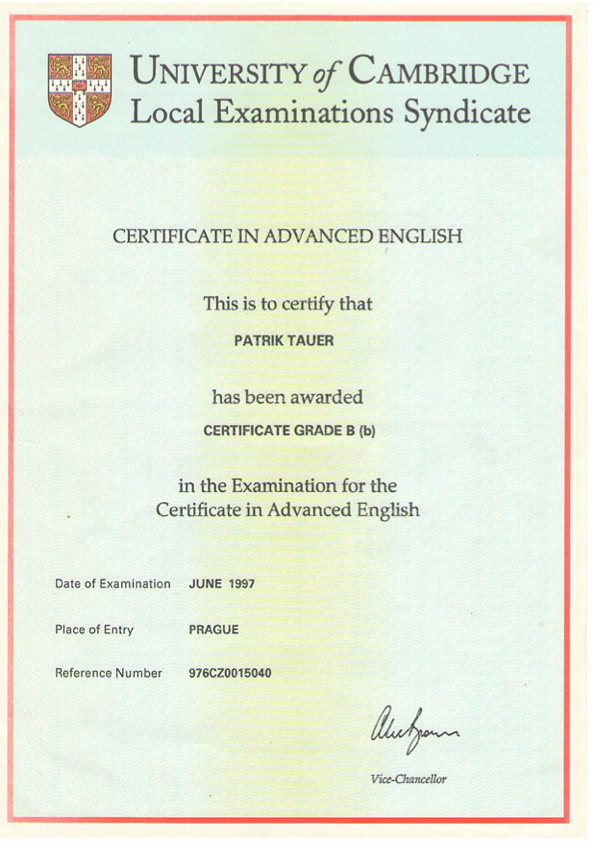About me
Mgr. Patrik Tauer
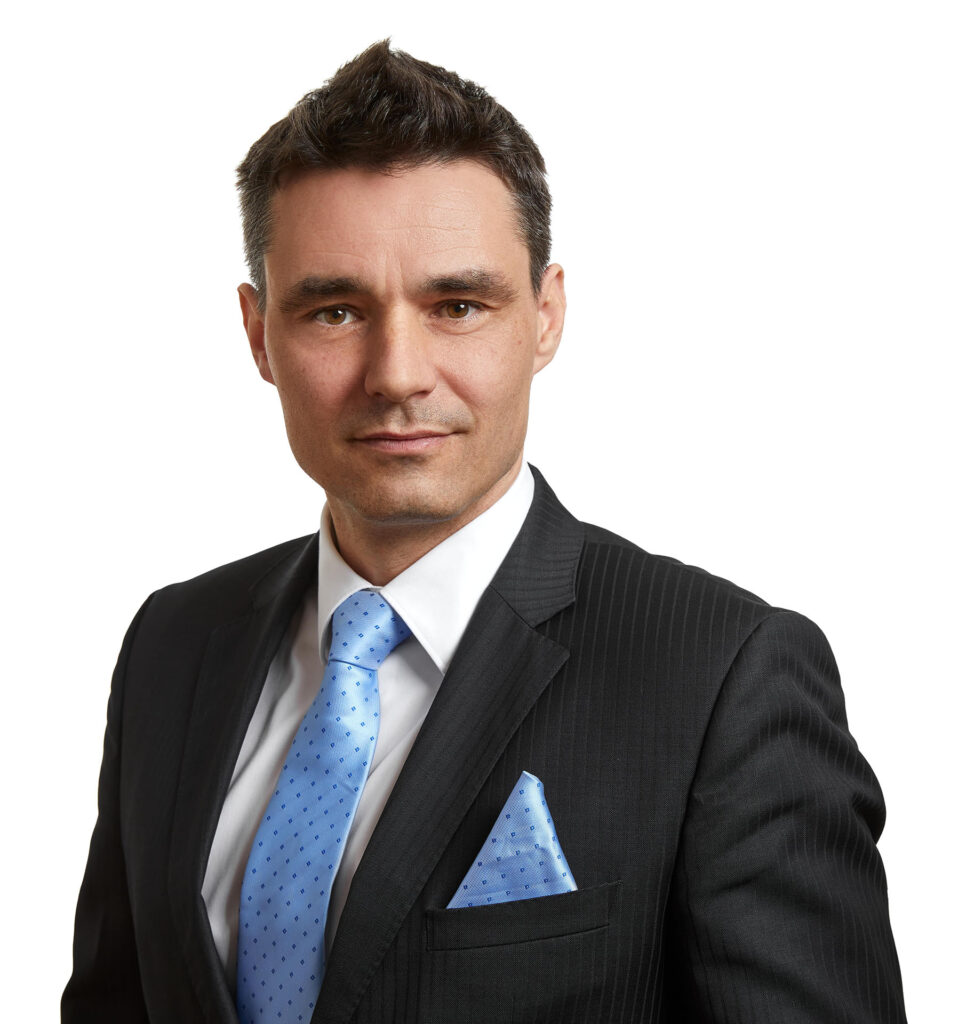
Position: Attorney-at-law, No. 09890
Education: Masters in Law from Faculty of Law, Charles University, Prague (2000) Degree name from Philosophical Faculty, Charles University, Prague
Work experience: attorney-at-law since 2003, member of the Czech Bar Association
Branch office: Švihov u Klatov
Speciality: international child abduction, claims for damages in bankruptcy proceedings
Languages: Czech, German, English, Japanese, French and Italian
Born in 1976 in Klatovy, Patrik took his Master’s in Law (Mgr.) degree from CharlesUniversity Law Faculty in January 2000. He has also studied Japanese at Charles University’s Philosophical Faculty (graduating in February 2005).
He worked in the Law Office Nykodým & Co. in central Prague between 2000 and 2005. After Dr. Nykodym’s departure to the Constitutional Court of the Czech Republic in December 2003, Patrik became a full partner of the law office.
Since establishing himself as an independent attorney-at-law in 2005, he has focused on providing legal services to small and medium companies not only from the Czech Republic, but also from abroad, which form the vast majority of his clients. Based on long-term working relationships he both settles ad hoc cases and provides complex legal services for his clients.
Philosophy
Life philosophy and principles:
“He who exalteth himself, shall be humbled; and he who humbelth himself, shall be exalted” (Gospel according to Luke, 14:11)
“Loyalty, faithfulness and forgiveness” (Confucius, Analects, Chapter IV., Verse 15)
Honeste vivere, neminem laedere, suum cuique tribuere or in English “to live honestly, not to cause damage to anybody, to render to everyman his due” (Domitius Ulpianus).
In many ways, it is astonishing how many philosophical and moral aspects of Christianity and Confucianism (such as reverence and esteem for parents, categorical imperatives and rejection of the death penalty) are so similar, despite the two systems developing so separately. Ulpianus deserves a mention not only since this webpage is after all a bit about the law, but also since he is said to be the best Roman lawyer.
Work philosophy and principles:
Hard work and modesty – it is necessary to gain and keep the trust of a client with hard work and modesty. Any attorney who uses empty talk to claim he is the best is either 99 per cent crazy or a liar.
Confucius said about modesty: “Do not be concerned about others not appreciating you. Be concerned about you not appreciating others.” (Analects, Chapter I., Verse 16).
Education – it is necessary to keep on educating oneself since the world and things around us are constantly changing and getting more and more complicated.
Confucius said about education right in the first verse of his Analects: “To learn and to practise what is learned time and again is pleasure, is it not?” (Analects, Chapter I., Verse 1).
Self-reflection – the attorney’s duty, which arises from both external and internal legislation (legal system and resolutions of the Czech Bar Association), is to represent his clients’ interests and try to do his best for them. Nevertheless, everybody makes mistakes. When one does, it is necessary to acknowledge the mistake and reflect upon it so that it will not happen again. One should not blame others for one’s own faults, or to claim ridiculously that nothing has happened.
Confucius said about self-reflection: “Advocate loyalty and trustworthiness. Have no friends who are not your equal. Do not hesitate to correct your faults.” (Analects, Chapter IX, Verse 24).
Cooperation with intelligent and learned individuals of all kinds – it is a great pleasure to be educated by and cooperate with those who are cleverer than yourself because so much can be learned from them.
Again, we must refer to Confucius who said: “Learn as if behind, and still be afraid of losing what has been learned”. (Analects, Chapter VIII, Verse 17).
It would be possible to quote Confucius for hours and hours, but let us end with some final observations to lighten the atmosphere.
In relation to invoicing and acquiring property: “Riches and position without righteousness are to me as the floating clouds.” (Analects, Chapter VII, Verse 15).
In relation to other attorneys: Confucius said, “Gentlemen do not compete, except for archery. With both hands clasped, each greets the other in ascent. Having descended, they drink to each other. Their competition is gentlemanly.” (Analects, Chapter III, Verse 7)
In relation to the character of a judge: Confucius said, “Anywhere under heaven for the gentleman there is nothing absolutely positive, there is nothing absolutely negative. Righteousness is his measure.” (Analects, Chapter IV, Verse 10)
In relation to the character of a politician:
Confucius said, “Do not be concerned when without official position, be concerned with where a stand is established. Do not be concerned when not appreciated, seek what can be appreciated.” (Analects, Chapter IV, Verse 14)
Confucius said, “The gentleman understands righteousness, the petty man understands profit.” (Analects, Chapter IV, Verse 16)
In relation to the parents (compare with the fourth commandment ”honour thy father and thy mother”):
Meng Wu Po asked about filial piety. Confucius said, “Your parents’ greatest worry would be your health.” (Analects, Chapter II, Verse 6)
Confucius said, “Parents’ ages should be known, for joy on one hand and for fear on the other.” (Analects, Chapter IV, Verse 21)


